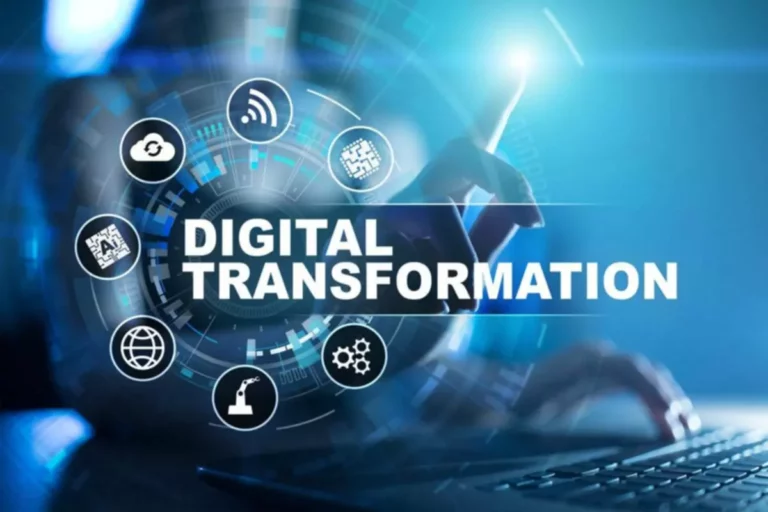The Evolution Of Digital Trust And The Way Enterprise Leaders Can Improve
Most companies at the moment are digital and the level cybersecurity is a major providing to attract customers. Users share increasingly personal info online, which puts them at risk and the significance of their confidence within the company increases. The increased connection between companies, government, industrial tools and private devices is generating elevated cyber and privacy dangers.
Individually, organizations could undergo reputational damage that makes it difficult to attract new prospects or companions; they could discover it more durable to compete within the market if folks don’t belief them as well. These incidents along with large-scale international challenges have made it harder for consumers, clients, and business companions to trust organizations to protect their interests and knowledge. Indeed, “81% of consumers lose belief in a model after a breach, whereas 25% fully stop interacting with it,” McKinsey reported in February 2022.

In today’s rapidly evolving digital landscape, where transactions and interactions happen on-line, the concept of digital trust has emerged as a crucial issue for achievement. Last week ISACA launched its conference Digital Trust World and as representative for Knowit I was there to be taught in regards to the latest developments within the space, after which deliver them to you. As each private and non-private organisations more and more rely on digital applied sciences and platforms, establishing and sustaining trust turns into paramount. A business’s status is incredibly important, and digital belief can affect how people view a brand. If a business has a data breach or different safety downside, it could harm the brand’s status and make customers much less likely to belief it. But if a enterprise prioritizes digital trust and takes robust safety measures, it may possibly enhance its popularity and turn out to be known as a dependable and reliable supplier.
What’s Digital Trust?
Paramount throughout this rapidly rising subject is fostering communities of apply and education that prioritize ethics and particular person company. “At institutions, there are often so many individuals that it makes this belief paradigm tougher to navigate.” So, what can they do? Feel empowered to reduce uncertainty and be clear about their capability, integrity and benevolence, she adds. Our location-based advertising answer can set up a sturdy groundwork via a demonstration. ISACA’s Digital Trust Ecosystem Framework (DTEF) presents enterprises a holistic framework that applies methods considering – the notion that a change in a single space can have an impact on one other area – across a complete organisation.

Digital trust is built on a quantity of key features, together with transparency, safety, reliability, privacy, and accountability. These features assist to establish trust between businesses and their customers and make sure that digital transactions are carried out safely and securely. Digital belief refers to the degree of confidence that individuals and businesses have within the security, privacy, and reliability of digital transactions and interactions.
Digital Belief
Organisations must spend money on coaching, schooling, and consciousness applications to develop a digital belief mindset throughout their workforce. The confidence positioned in the integrity of relationships, interactions, and transactions inside a digital ecosystem. The Digital Trust Ecosystem Framework Foundation Certificate signifies expertise in integrating digital trust practices across organizations, guiding trust-focused product methods, and enhancing competitiveness and reputation. Rakshit heads the Marketing function of Subex, overseeing underlying functions like Product Marketing, Digital Marketing, Analyst Relations, Public Relations, Inside Sales, and Branding. He has near 13 years of experience, and comes with strong experience in integrated marketing, product positioning, value-based messaging, content creation, and demand technology for IT services and products.

Implementing sturdy encryption, multi-factor authentication, and frequently updating security methods are important steps to guard delicate information. Transparent privacy policies and consent mechanisms can improve buyer confidence and trust. People expect digital know-how and services to protect all stakeholders’ interests and meet societal values. In a more practical sense, digital belief is commonly seen as establishing a trusted online popularity digital trust definition, being credible and clear and guaranteeing customers have a robust and secure expertise. Customer loyalty is crucial for long-term enterprise success, and digital belief is a key part of building and maintaining that loyalty. When clients trust a business to handle their private information responsibly and prioritize their privacy, they’re extra prone to stay loyal to that enterprise over time.
Eroding Digital Belief Has A Broad Social Impression
This will enhance digital belief while making information management and sharing more trusted and simpler. It’s necessary to know that digital belief goes past simply the digital realm and also encompasses the physical world. For occasion, when a buyer locations an order on-line, they anticipate well timed and secure delivery of their product.

ISACA member Shea Nangle shares his perspective on what he calls “the implicit struggle between revenue and what’s done with shopper data,” and how that components into creating digital trust. For enterprises, Digital Trust must be an all-encompassing idea, being multi-directional, and multi-dimensional. This means for a enterprise to ascertain great ranges of Digital Trust, it must demonstrate trust between shoppers, shareholders, companions, vendors and governing bodies.
Digital Trust Ecosystem Framework A Priceless Complement To Cobit, Different Frameworks
Then, IoT must protect personal, delicate knowledge shared on the gadget via encryption. Digital belief is the confidence customers have in the capability of people, expertise and processes to create a secure digital world. Digital trust is given to companies who’ve shown their customers they can present security, privateness, safety, reliability, and information ethics with their online packages or units. When an individual decides to use a company’s product, they are confirming their digital belief in the business. It encompasses the power of individuals, organisations, processes, info, and expertise to create and preserve a reliable digital world. It goes beyond mere cybersecurity measures and consists of elements corresponding to ethics, reputation, privacy, and the quality of products or services.

Business leaders have began including cybersecurity and privacy personnel in their improvement course of from the beginning, instead of ignoring them. This helps guarantee the corporate just isn’t avoiding safety measures just to get their service or system available on the market. Digital trust will allow clients to search out and choose the reliable digital companies quicker, higher and with much less unreliable choices to distract them. Eventually, machines will automate the decision course of by calculating the extent of confidence in a program. This will require more data to be provided about a company’s service or product, creating increased transparency that may even construct digital trust. Organisations should proceed to prioritise cybersecurity measures and put money into sturdy privateness practices.
ISACA’s Digital Trust Ecosystem Framework helps auditors and different digital belief professionals be certain that AI is implemented in a way that strengthens the organization and inspires belief with stakeholders. The 60-minute, self-paced online course explores digital belief ideas and DTEF parts. During the course, participants will outline digital trust, explore its worth and impact on organizational success, summarize the components of the DTEF, and describe the nodes and domains that comprise the DTEF. For all its wonders, the digital world also has a darkish side, it is only as ethical as its creators. For example, when an individual places an order on-line, they expect safe and punctual supply of the product – another outcome will probably cut back their belief in the provider. In new global research, more than 5,800 professionals weigh in on digital trust priorities, obstacles, measurement, gaps and more.
Overall, digital belief plays a significant role in shaping shopper conduct, including their willingness to share information and make on-line purchases. Digital belief is used by both digital service companies and their customers. Consumers are extra likely to use a company that’s trustworthy than one that is unreliable. Companies goal to achieve digital trust from shoppers and use this goal to digitally transform themselves and create larger confidence in security, security, privacy and reliability amongst shoppers.
Mapsted know-how can additionally be hardware-free, dependable even in useless zones, and offers one-meter precision blue-dot navigation. Internet of issues (IoT) technologies have been displaying vulnerabilities throughout all industries. Consumers are dropping confidence within the ability of manufacturers to produce safe, safe merchandise. These gadgets usually are not being constructed with safety in mind, thus opening them to the specter of hackers and data breaches. In order to construct confidence, IoT gadget producers should first concentrate on enhancing the safety within the system authentication process. Trust can’t be given unless the device has a strong authentication methodology which protects customers from malware.
Consumers trade their data to have the ability to gain access in addition to make their expertise more handy and personalized. If customers really feel like their knowledge is being utilized in a means that they don’t agree with, firms can supply them management of when and the way they want their data for use. This creates a trusting relationship based mostly on mutual respect between the companies and their customers. A lack of digital belief can break down everything you’ve worked onerous for. Unlike other firms, managing your clients’ knowledge not out of fear but belief, keeps you a step forward on this period of Digitization.
- Consumers are more likely to choose a company that’s reliable than one that’s unreliable.
- It incorporates detailed practices, activities, outputs, controls, KPIs and KRI’s, providing practitioners with a complete toolkit for implementation and assessment.
- Cybersecurity is a key player that will guarantee that there’s digital belief between consumers and service suppliers.
- Digital trust will enable clients to find and select the reliable digital providers quicker, better and with less unreliable decisions to distract them.
Therefore, businesses should spend money on robust safety measures and clear knowledge collection and utilization insurance policies to guarantee that buyer information is protected and privateness is maintained. Finally, businesses ought to leverage applied sciences like AI and information belief to monitor data accuracy and improve information security and management while managing authorized knowledge rights. More specifically, digital belief involves establishing a strong on-line popularity, building credibility and transparency, and offering an distinctive buyer expertise. This contains implementing security measures to guard against cyber threats, being transparent about how buyer knowledge is collected and used, and ensuring that all on-line interactions are seamless and frictionless.
Leading The Means In Which In The Pursuit Of Digital Trust
The extra digital trust an organization receives, the more doubtless it will be to gain more users. In the future, applied sciences together with blockchain (i.e., tamper-proof records) and quantum technologies (i.,e., quantum key distribution) could provide even more refined knowledge security and contribute to digital trust as nicely. Today, shoppers, businesses, and even governments conduct a lot or most of their private and professional actions online.
It advocates embedding digital trust into an organization’s GRC mannequin as connecting digital actions to the governing construction can positively affect belief between the organization and its stakeholders. This e-publication helps organizations decide the right method to adopting and implementing a digital belief technique leveraging the DTEF. It is a flexible strategy that allows organizations to give consideration to their enterprise goals and decide what belief components and practices to prioritize for implementation. The guidance is customizable so organizations can optimize digital trust posture based mostly on their wants.
Building digital belief requires transparency in operations and accountability for actions. The actors in the digital ecosystem have to be open about their information assortment practices, dealing with of customer information, and using emerging applied sciences like synthetic intelligence. Failure to offer transparency can erode belief and result in reputational harm. With an uptick within the numbers of digital services and products, consumers anticipate transparency in every facet of their interaction with a brand. In the digital world, individuals have entry to huge hordes of data available at their fingertips.
